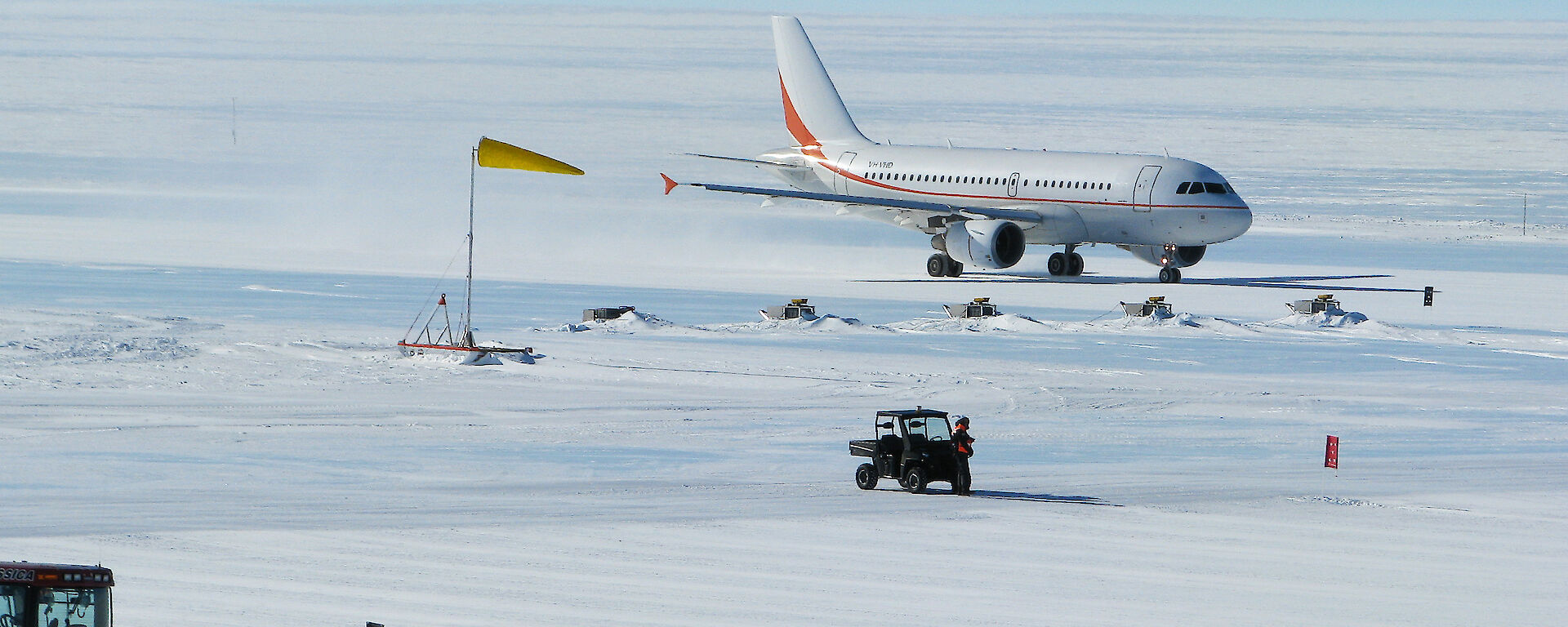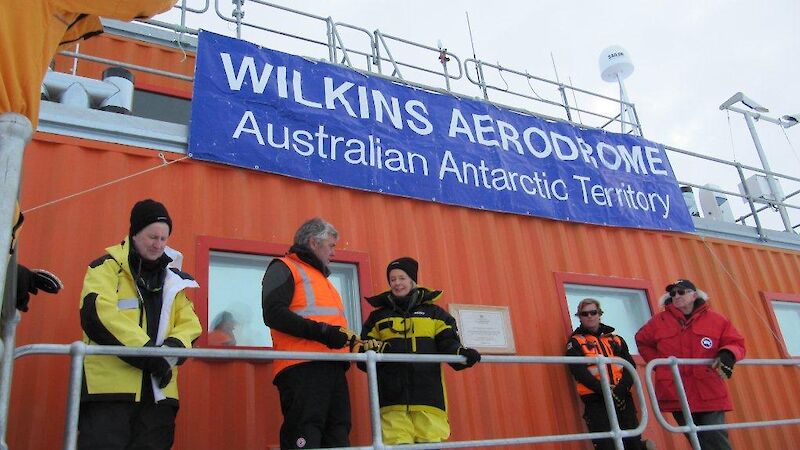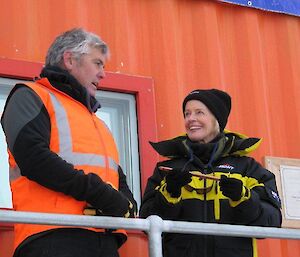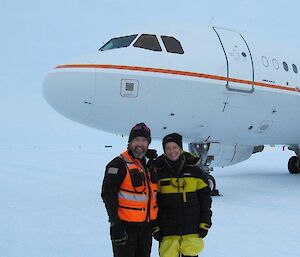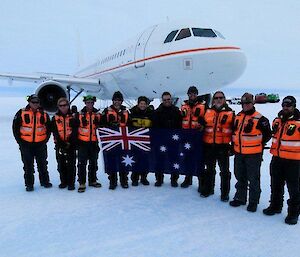Governor-General, Ms Quentin Bryce AC CVO, has become the first Australian Governor-General to travel to Antarctica.
Her Excellency today flew to the Wilkins runway in Australia’s Antarctic Territory as part of the ongoing centenary celebrations of the Australasian Antarctic Expedition 1911–1914 led by scientist and polar explorer, Dr Douglas Mawson.
Ms Bryce was greeted at Wilkins by Allan Cooney, station leader at nearby Casey station and a number of scientists and support personnel who are crucial to the success of Australia’s Antarctic program. She also toured the communications facilities and living quarters, and experienced the confines of a remote field camp.
In honour of the Mawson-led expedition one hundred years ago, Her Excellency unveiled a plaque. Rather than a traditional unveiling, the plaque had been set in ice which Ms Bryce cracked with a small hammer to reveal its inscription marking the event.
Ms Bryce paid tribute to Douglas Mawson’s courage in adversity, his dedication to scientific exploration and his foresight in recognising the significance of Antarctic science not just to Australia but to the rest of the world. Ms Bryce said that Mawson’s discoveries and painstaking research held resonance today as modern science continues in the region.
Douglas Mawson was knighted by King George V in 1914.
Mawson returned to the Antarctic twice more, in 1929–30 and 1930–31, as leader of the first and second summer voyages of the British, Australian and New Zealand Antarctic Research Expedition (BANZARE), concentrating on oceanography, Antarctic and sub-Antarctic marine biology, and Antarctic coastal exploration to the west of the Shackleton Ice Shelf. He had first travelled south with Ernest Shackleton in 1907.
The Governor-General was accompanied on the early morning flight from Hobart by the Director of the Australian Antarctic Division, Dr Tony Fleming and Climate Program Leader, Dr Tas van Ommen, among others.
Ms Bryce returned to Hobart this afternoon on the flight which also brought back some summer expeditioners whose research on the Antarctic continent has come to a close for this season.

